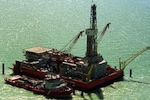 On April 16, Kazakhstan's Oil and Gas Minister Sauat Mynbayev made a statement that drew much attention from both domestic and international media and should certainly have been widely commented on in several capitals, including Washington, Moscow, Beijing and New Delhi. After walking out of a regular government meeting, Mynbayev officially confirmed China interest in the Kashagan's oil project. This vast and complex undertaking in the Kazakhstani sector of the Caspian Sea has already cost its investors over $116 billion by August 2012, ahead of the Gorgon and Ichthys gas projects in Australia worth $57 billion and $43 billion, respectively (Newskaz.ru, April 16; The Astana Times, January 11; CNN Money, August 27, 2012)
On April 16, Kazakhstan's Oil and Gas Minister Sauat Mynbayev made a statement that drew much attention from both domestic and international media and should certainly have been widely commented on in several capitals, including Washington, Moscow, Beijing and New Delhi. After walking out of a regular government meeting, Mynbayev officially confirmed China interest in the Kashagan's oil project. This vast and complex undertaking in the Kazakhstani sector of the Caspian Sea has already cost its investors over $116 billion by August 2012, ahead of the Gorgon and Ichthys gas projects in Australia worth $57 billion and $43 billion, respectively (Newskaz.ru, April 16; The Astana Times, January 11; CNN Money, August 27, 2012)
 With every passing month, Tony Blair looks more and more like a deposed emperor who has systematically set up his own government in exile. How else should we view the inexorable rise of his shadowy and quasi-political network of businesses, whose tentacles stretch from his smart offices next to the American Embassy in London into every corner of the globe?
With every passing month, Tony Blair looks more and more like a deposed emperor who has systematically set up his own government in exile. How else should we view the inexorable rise of his shadowy and quasi-political network of businesses, whose tentacles stretch from his smart offices next to the American Embassy in London into every corner of the globe?


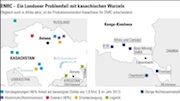 Während in London wegen schweren Betrugs gegen ENRC ermittelt wird, will ein kasachisches Bündnis den Rohstoffkonzern mit Staatshilfe komplett übernehmen. Jetzt erhält es mehr Zeit, sein Angebot aufzubessern.
Während in London wegen schweren Betrugs gegen ENRC ermittelt wird, will ein kasachisches Bündnis den Rohstoffkonzern mit Staatshilfe komplett übernehmen. Jetzt erhält es mehr Zeit, sein Angebot aufzubessern. By drawing attention to Iraq and the obvious role oil plays in US policy today, the Bush-Cheney administration has done just that: They have drawn the world's energy-deficit powers' attention firmly to the strategic battle over energy and especially oil. This is already having consequences for the global economy in terms of $75 a barrel crude oil price levels. Now it is taking on the dimension of what one former US Defense Secretary rightly calls a 'geopolitical nightmare' for the United States.
By drawing attention to Iraq and the obvious role oil plays in US policy today, the Bush-Cheney administration has done just that: They have drawn the world's energy-deficit powers' attention firmly to the strategic battle over energy and especially oil. This is already having consequences for the global economy in terms of $75 a barrel crude oil price levels. Now it is taking on the dimension of what one former US Defense Secretary rightly calls a 'geopolitical nightmare' for the United States.
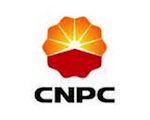 On December 15, the state-owned China National Petroleum Corp. (CNPC) inaugurated an oil pipeline running from Kazakhstan to northwest China. That pipeline will undercut the geopolitical significance of the Washington-backed Baku-Tbilisi-Ceyhan oil pipeline which opened this past summer amid big fanfare and support from Washington. The geopolitical chess game for the control of the energy flows of Central Asia and overall of Eurasia from the Atlantic to the China Sea is sharply evident in the latest developments.
On December 15, the state-owned China National Petroleum Corp. (CNPC) inaugurated an oil pipeline running from Kazakhstan to northwest China. That pipeline will undercut the geopolitical significance of the Washington-backed Baku-Tbilisi-Ceyhan oil pipeline which opened this past summer amid big fanfare and support from Washington. The geopolitical chess game for the control of the energy flows of Central Asia and overall of Eurasia from the Atlantic to the China Sea is sharply evident in the latest developments. After the tragic events of July 5 in Xinjiang Uyghur Autonomous Region in China, it would be useful to look more closely into the actual role of the US Government’s ”independent“ NGO, the National Endowment for Democracy (NED). All indications are that the US Government, once more acting through its “private” Non-Governmental Organization, the NED, is massively intervening into the internal politics of China.
After the tragic events of July 5 in Xinjiang Uyghur Autonomous Region in China, it would be useful to look more closely into the actual role of the US Government’s ”independent“ NGO, the National Endowment for Democracy (NED). All indications are that the US Government, once more acting through its “private” Non-Governmental Organization, the NED, is massively intervening into the internal politics of China.
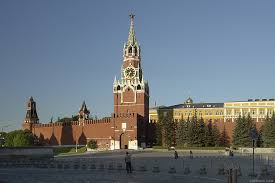 Two Kremlin-controlled banks are planning to back a bid for U.K.-listed Eurasian Natural Resources Corp. PLC (ENRC.LN), the Sunday Times said. VTB Bank (VTBR.RS) and OAO Sberbank (SBER.RS), majority owned by the Russian state, have been hired by three central Asia tycoons who founded ENRC, the U.K. newspaper said. They've set up a vehicle to acquire the outstanding shares and have 12 days to table a bid to meet a Takeover Panel deadline, the Sunday Times said.
Two Kremlin-controlled banks are planning to back a bid for U.K.-listed Eurasian Natural Resources Corp. PLC (ENRC.LN), the Sunday Times said. VTB Bank (VTBR.RS) and OAO Sberbank (SBER.RS), majority owned by the Russian state, have been hired by three central Asia tycoons who founded ENRC, the U.K. newspaper said. They've set up a vehicle to acquire the outstanding shares and have 12 days to table a bid to meet a Takeover Panel deadline, the Sunday Times said.
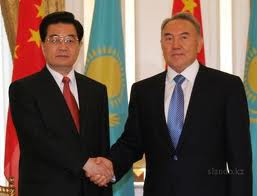 Recently, Kazakhstan's Oil and Gas Minister Sauat Mynbayev finally confirmed China's interest in becoming involved in one of the world's most expensive energy projects ever at the Kashagan oilfield on the Caspian Sea.
Recently, Kazakhstan's Oil and Gas Minister Sauat Mynbayev finally confirmed China's interest in becoming involved in one of the world's most expensive energy projects ever at the Kashagan oilfield on the Caspian Sea.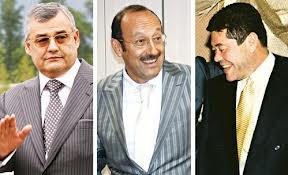 The most surprising thing about the founding trio of Eurasian Natural Resources Corporation – which controls some of Kazakhstan's most important assets – is that none is a native Kazakh.
The most surprising thing about the founding trio of Eurasian Natural Resources Corporation – which controls some of Kazakhstan's most important assets – is that none is a native Kazakh.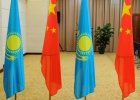 "With China having already cornered about 40 per cent of this country's hydrocarbon assets, India's assessment is that it can get a chunk of the remaining portion if New Delhi plays its political and diplomatic cards right," The Hindu writes.
"With China having already cornered about 40 per cent of this country's hydrocarbon assets, India's assessment is that it can get a chunk of the remaining portion if New Delhi plays its political and diplomatic cards right," The Hindu writes.

